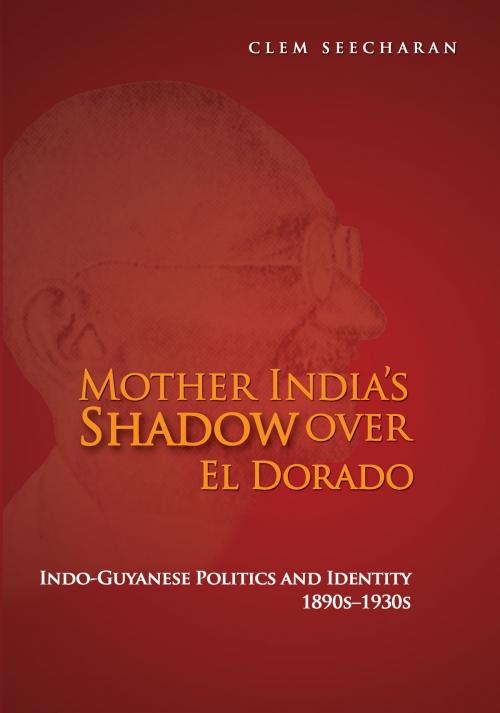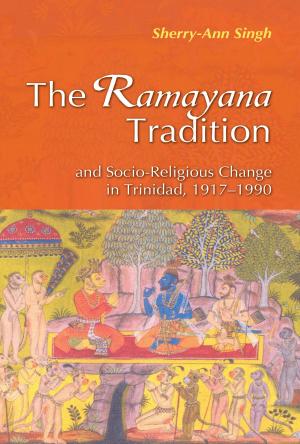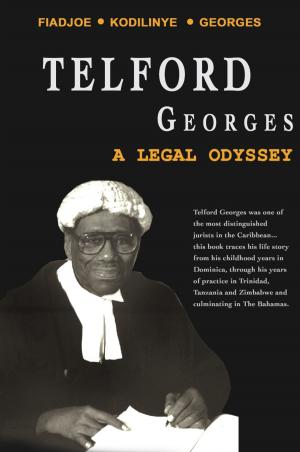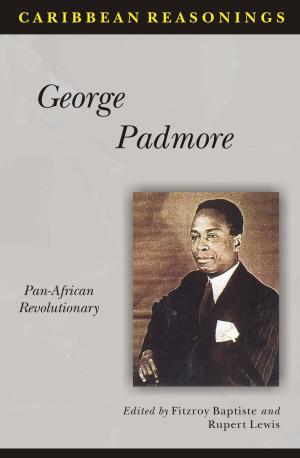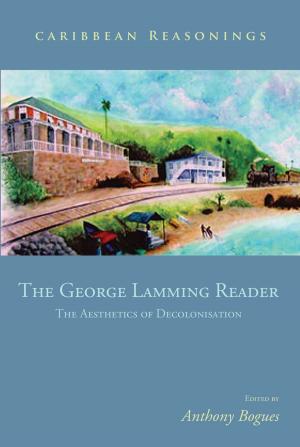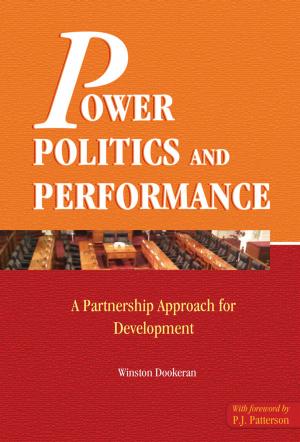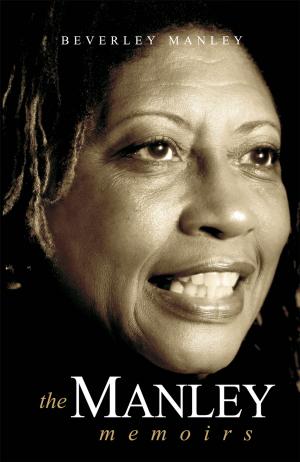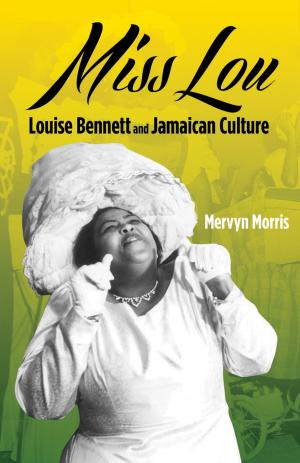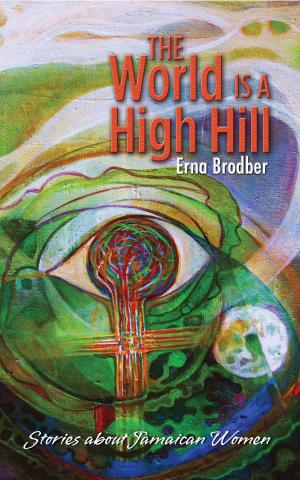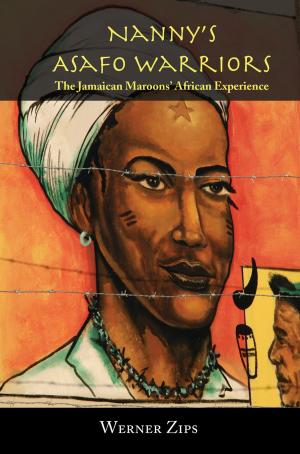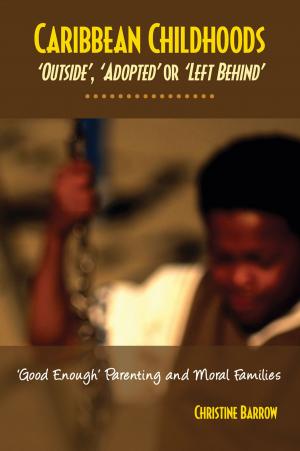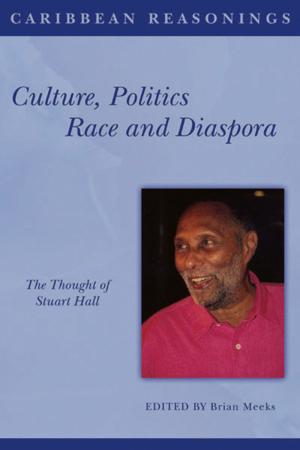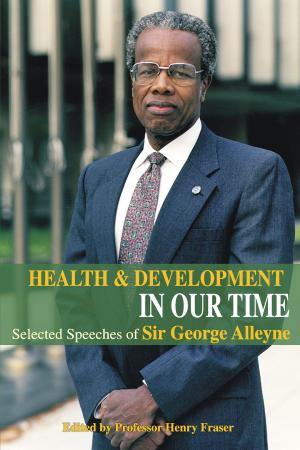Mother India's Shadow Over El Dorado: Indo-Guyanese Politics and Identity 1890s–1930s
Nonfiction, Social & Cultural Studies, Social Science, Demography, Cultural Studies, Ethnic Studies, Anthropology| Author: | Clem Seecharan | ISBN: | 9789766376642 |
| Publisher: | Ian Randle Publishers | Publication: | May 2, 2014 |
| Imprint: | Language: | English |
| Author: | Clem Seecharan |
| ISBN: | 9789766376642 |
| Publisher: | Ian Randle Publishers |
| Publication: | May 2, 2014 |
| Imprint: | |
| Language: | English |
Diverse conceptions of India, as homeland, were central to the shaping of Indo-Guyanese identity. An imagined India − part fact, part fantasy − has continually woven into the Indo-Guyanese consciousness a rich, elevating construction of self: an antidote to the deflating image of the ‘coolie’ that lingered after Indian indentureship ended in 1920.
In Mother India’s Shadow over El Dorado: Indo-Guyanese Politics and Identity 1890s–1930s, Clem Seecharan reconstructs the circumstances surrounding the development of Indo-Guyanese nationalism between the 1890s and the 1930s giving insight into the colonial authorities’ role in promoting tensions between Indo-Guyanese and African-Guyanese during the same period.
Drawing on primary sources of information from contemporary newspapers, parliamentary papers and colonial dispatches, Mother India’s Shadow presents a comprehensive picture of the ‘many Indias’ Indo-Guyanese (Hindus, Muslims and Christians) embraced in challenging the ‘coolie’ persona, while seeking to belong in creole society. On the flip side, the consuming El Dorado syndrome in Guyana bred a discernible triumphalism among Indo-Guyanese, manifested in the Colonisation Scheme of the 1920s and the associated ideas of creating an ‘Indian colony’ or a ‘Greater India’ in Guyana. This kindled a resilient fear among African-Guyanese of Indian domination, economically and politically and impacted the socio-political relations between these two groups in Guyana – a tense relationship which endures today.
Seecharan authoritatively handles these complex issues in Mother India’s Shadow and gives readers an insight to appreciating the smouldering ethnic problems of contemporary Guyana.
Clem Seecharan is Professor of Caribbean History, London Metropolitan University. He is also the author of Sweetening Bitter Sugar: Jock Campbell – The Booker Reformer in British Guiana 1934–1966; From Ranji to Rohan: Cricket and Indian Identity in Colonial Guyana, 1890s-1960s and Muscular Learning: Cricket and Education in the Making of the British West Indies at the End of the 19th Century.
Diverse conceptions of India, as homeland, were central to the shaping of Indo-Guyanese identity. An imagined India − part fact, part fantasy − has continually woven into the Indo-Guyanese consciousness a rich, elevating construction of self: an antidote to the deflating image of the ‘coolie’ that lingered after Indian indentureship ended in 1920.
In Mother India’s Shadow over El Dorado: Indo-Guyanese Politics and Identity 1890s–1930s, Clem Seecharan reconstructs the circumstances surrounding the development of Indo-Guyanese nationalism between the 1890s and the 1930s giving insight into the colonial authorities’ role in promoting tensions between Indo-Guyanese and African-Guyanese during the same period.
Drawing on primary sources of information from contemporary newspapers, parliamentary papers and colonial dispatches, Mother India’s Shadow presents a comprehensive picture of the ‘many Indias’ Indo-Guyanese (Hindus, Muslims and Christians) embraced in challenging the ‘coolie’ persona, while seeking to belong in creole society. On the flip side, the consuming El Dorado syndrome in Guyana bred a discernible triumphalism among Indo-Guyanese, manifested in the Colonisation Scheme of the 1920s and the associated ideas of creating an ‘Indian colony’ or a ‘Greater India’ in Guyana. This kindled a resilient fear among African-Guyanese of Indian domination, economically and politically and impacted the socio-political relations between these two groups in Guyana – a tense relationship which endures today.
Seecharan authoritatively handles these complex issues in Mother India’s Shadow and gives readers an insight to appreciating the smouldering ethnic problems of contemporary Guyana.
Clem Seecharan is Professor of Caribbean History, London Metropolitan University. He is also the author of Sweetening Bitter Sugar: Jock Campbell – The Booker Reformer in British Guiana 1934–1966; From Ranji to Rohan: Cricket and Indian Identity in Colonial Guyana, 1890s-1960s and Muscular Learning: Cricket and Education in the Making of the British West Indies at the End of the 19th Century.
